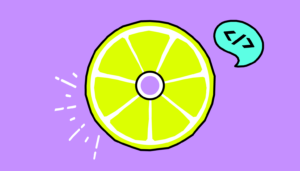Everything you should know about our job interviews at Lemon.io: what can you ask, what should you prepare, and how to make them a starting point to a successful career
For whom it’s written?
This article will be of much use and interest to a few different categories of web developers.
First of all, we strongly recommend you to read it if you’ve been lucky enough to pass all the vetting tests at Lemon.io and start waiting for your first job. What is waiting for you there? Who will be speaking to you? What questions it’s better to ask — and how to present yourself? Read our article and find all answers enclosed.

If you are still unfamiliar with Lemon.io (but have spent a significant amount of time on bidding and vetting marketplaces), we strongly advise examining our textual selfie first. After it, you’ll never miss a chance to try passing our vetting procedures.
Suppose you are a talented coder working full-time. You are seriously considering transferring to freelance, but some anxious thoughts hinder you from the final step. In that case, we’d like to advise our piece about self-selling on non-bidding marketplaces. You’ll learn that you’re by no means alone in your fears — but there are indeed viable solutions (and Lemon.io is one of them!)
When the client declares their intention to hire Lemon.io developers for the project, our Sales specialists address the Matching team that handpicks suitable candidates from the pre-vetted and registered pool. Sales and Matching teams cooperate and arrange the job interview — where you should show yourself in the best possible light.
So, how to nail it and get everything you want? Let’s find out.

Preparation
Lemon.io helps all its developers sell their skills in the best conditions. However, it’s crucial to remember that a job interview is an essential part of this process — so you’d better be prepared for it and do your homework in advance. If you fail at the interview, all the preceding efforts can’t guarantee a successful hire.
Before the interview, it is essential to examine the products/projects of your interviewer carefully. You should know where you’re going to work. (Captain Obvious speaking — but we’d never mention it if we hadn’t some embarrassing experience.)
For all our devs, we advise you to find out the answers to the following questions:
- What is the profile of the startup?
- Who are their main competitors in the field?
- What are their goals?
- Which kind of tech stack is needed to achieve the goals?
- How can you help them achieve these goals?
Most often, that’s the information our Sales representative discusses with the client during the intro call. Naturally, you can ask us for some extra details and facts.
At the very least, read the job description — either find it online for yourself or ask our Sales/Matching departments to assist you.
Who will judge you?
First things first: we vet clients too! That’s why you won’t come across startup owners who don’t know why they need developers or can’t describe their projects or demands. Working with them is hard — and we try to avoid unnecessary suffering for all sides.
There are two basic client types: either with a technical background or without one.
If your interviewer is a coder, they will probably ask you technical questions and analyze your code. Otherwise, your interview will be mostly about your experience and the expected working conditions.
CEOs, CTOs, or COOs often hold the interviews. From time to time, you’ll be talking to the lead engineers. HRs are pretty rare.

Clients’ FAQ
What questions can you expect from your potential employer?
- What’s your work experience on similar projects?
If you’re trying to nail an interview with a potential employee from the fintech field, they’ll probably ask some questions about it. Prepare a structured story with the key points.
- Why are you interested in this field if you have no experience whatsoever?
For the developers who decided to try something new and explore previously untouched terrain — please, think it over. If you’ve got no relevant experience, sell something instead. Sell your curiosity, flexibility, soft skills, and talent to learn fast.
- How do you manage your workload and time in general?
That’s a typical soft skills question. Share your thoughts on time management and planning: the client who buys an offshore developer wants to be sure that the work will be done in time. We don’t offer any controlling tools — try to convince the client we’re right to do so.
- Who checked/tested your results in the previous workplace?
That’s the question about quality control and your work experience. Are you accustomed to the distant control? Do you know how often and how it’s preferable to deliver your current results? Have you passed any quality tests?
- Have you already worked in international companies?
International companies differ from those operating inside a country and having a monocultural community and work ethics. Are you ready to handle potential intercultural issues and accept various points of view, or is every problem a zero-sum game for you?
- What kinds of technological challenges have you come across?
Describe the problem-solution models you’ve participated in.
Generally, our clients don’t ask for any additional hard skills tests — they trust our devs and our vetting procedure. However, there is a nonzero chance of the code review or other technical challenges after the initial acquaintance. What kinds of tech tests have we seen in our interviews? For better transparency, we’ve made a brief overview.
Show me your code (hard skills test)
1st place — the client asks you to show your code and analyze it together (use cases from your previous places of work to demonstrate your way of thinking and approaches to problem-solving). Per our Sales team, this kind is the best and the most efficient.
2nd place — the client asks you theoretical and practical questions about the code you’re expected to write in your new workplace (initial acquaintance with your future task span).
3rd place — the client asks you purely theoretical questions on the programming languages, algorithms, frameworks, etc. (not more than 10% of all Lemon.io job interviews).
What are you to show besides the code?
Every oral interview reveals your stress patterns, communication skills, and tons of various collateral verbal and nonverbal information. What do your future clients want to see? First of all, you should remember that you will be cooperating distantly — and communicate your needs and troubles also distantly. Small wonder that your employees want transparency and clearness and many other optional skills that make communication fruitful.
Key soft skills questions
- How do you react to stressful situations?
- How do you answer unexpected questions?
- What are you going to do if you don’t know the answer?
- Can you overcome your fears and speak/act coherently?
- Can you communicate your needs logically and rationally in stressful conditions?
The shortest developer’s interview with a client I remember lasted 7 minutes. The longest one took 3 hours. The smaller the project, the shorter the interview. For a long-term position, you should be ready to pass several stages of selection.
Kate Leschyshyn, Sales Team Lead
What can you ask?
First, a dev who’s not curious about their future work is not suitable for it. Of course, we’re all too familiar with stress signs and possible language barrier problems, but you’d better prepare some curiosity in advance.
To make the task easier, Lemon.io provides its developers with all the eligible information on the client’s project before the job interview. Contact your manager, ask for support — and you’ll get it.
Moreover, each of our engineers can use the unique double combo offer: all the information + the psychological portrait + our Interview tips (a starter kit of questions included). Just ask for it.
The most popular general discussion topics for the job interview (based on personal experience of our Sales representatives):
- Web technologies;
- Testing and deployment;
- Task distribution;
- Work meetings and workload in general.
One more hot and helpful task for discussion: What problems do you have with the project I will work with? How can I solve them?
You’re showing your maximum involvement in the actual workflow by asking this. After you get the information about the pain points, you can prepare to handle them and spare time in the future.
TL; DR. How does Lemon.io help its devs prepare for the interview?
- We offer our coders only carefully trimmed and pre-selected clients (just as we offer our clients only pre-vetted devs);
- All the devs can get some extra info about the client in question;
- We present your CV to the client, highlighting all your strengths and explaining why they need to take you ASAP;
- We offer you a unique opportunity for a small warm-up talk with our Sales team before the interview. Just to make it smooth;
- In the end, we roll it all up and (shush!) answer your off-the-record questions about how it all looked from the outside — just because we care.
Good luck with the interview — for those who’re already with us.
Come to us, and we’ll vet you — for those who’re still not.










